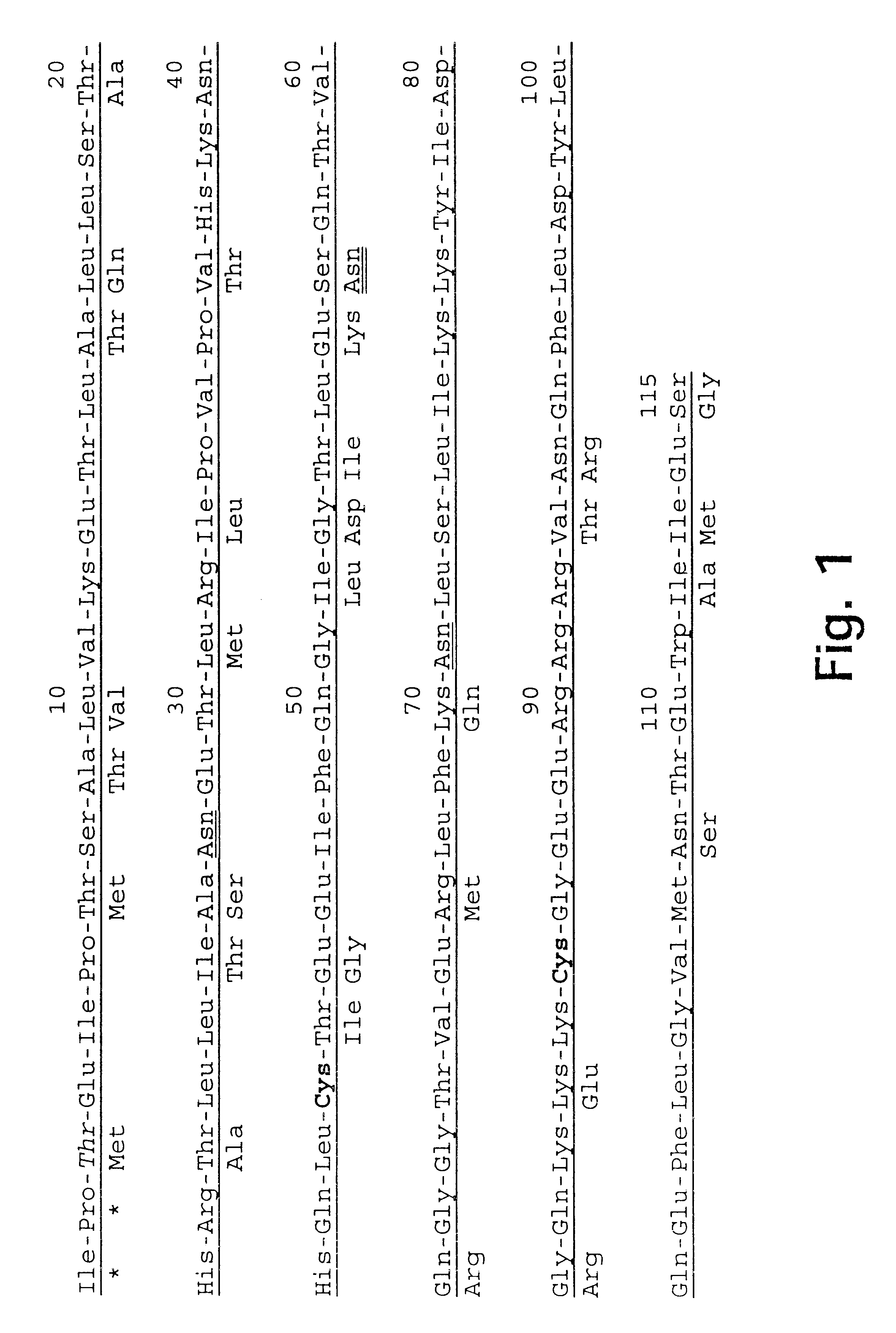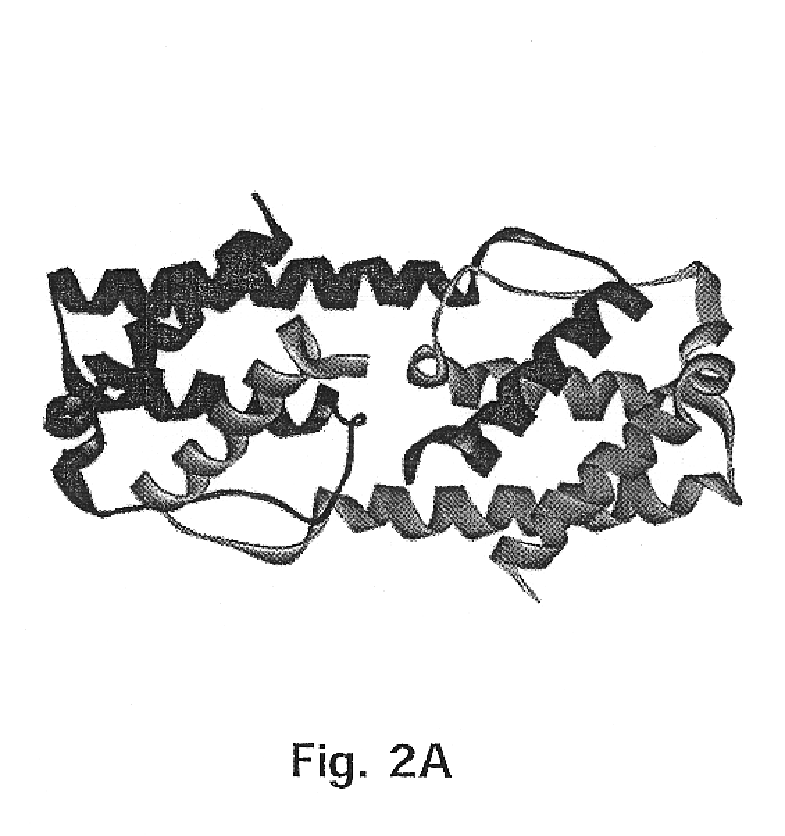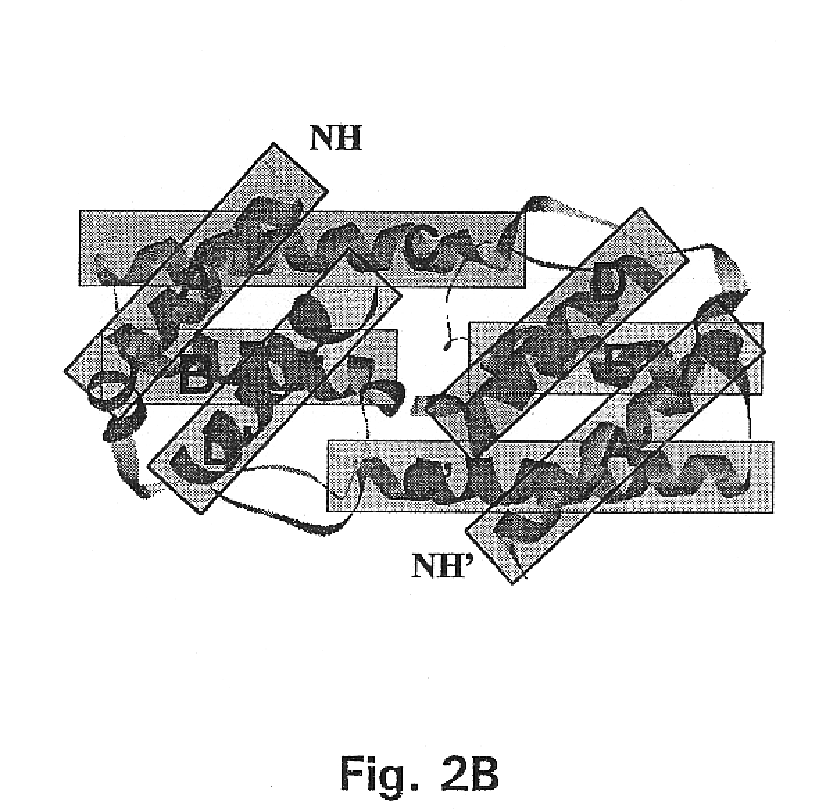Method for down-regulating IL5 activity
a technology of il5 activity and down regulation, which is applied in the direction of dna/rna fragmentation, peptide/protein ingredients, fungi, etc., can solve the problems of airway eosinophilia, extensive lung damage, airway hyperreactivity, etc., and achieve the effect of reducing the pathogenic level of eosinophils, reducing the number of eosinophils, and reducing the inflammation of airway
- Summary
- Abstract
- Description
- Claims
- Application Information
AI Technical Summary
Benefits of technology
Problems solved by technology
Method used
Image
Examples
example 1
Variants With P2 Substituting Positions in Loop 3 While Preserving Cys84(86)
The P2 epitope (SEQ ID NO: 23) is substituted into loop 3 while avoiding elimination of Cys84(86). These variants (SEQ ID NOs: 2 and 28 (human), where amino acids 87-90 or 88-91 are substituted and 13 and 46 (murine) where amino acids 85-88 pr 86-89 are substituted) are potentially active as both monomers (due to the elongation of loop 3) and as dimers. SEQ ID Nos: 28 and 46 are also denoted hIL5.1 and mIL5.1, respectively.
example 2
Variants With P2 Substituting Positions in Loop 1 While Preserving Cys42(44)
The P2 epitope (SEQ ID NO: 23) is substituted into loop 1 while avoiding elimination of Cys42(44). These variants (SEQ ID NOs: 3 and 36 (human) where amino acids 32-43 or 33-43 are substituted and 14 and 56 (murine) where amino acids 30-41 or 31-41 are substituted) are potentially active as dimers only. SEQ ID Nos: 36 and 56 are also denoted hIL5.5 and mIL5.5, respectively.
example 3
Variants with P2 Substituting Positions in Loop 2
The P2 epitope (SEQ ID NO: 23) is substituted into loop 2. These variants (SEQ ID NOs: 4 and 34 (human) where amino acids 59-64 are substituted and 15 and 50 (murine) where amino acids 57-62 are subsituted) are potentially active as dimers only. SEQ ID Nos: 34 and 50 are also denoted hIL5.4 and mIL5.4, respectively.
PUM
| Property | Measurement | Unit |
|---|---|---|
| concentration | aaaaa | aaaaa |
| temperatures | aaaaa | aaaaa |
| concentration | aaaaa | aaaaa |
Abstract
Description
Claims
Application Information
 Login to View More
Login to View More - R&D
- Intellectual Property
- Life Sciences
- Materials
- Tech Scout
- Unparalleled Data Quality
- Higher Quality Content
- 60% Fewer Hallucinations
Browse by: Latest US Patents, China's latest patents, Technical Efficacy Thesaurus, Application Domain, Technology Topic, Popular Technical Reports.
© 2025 PatSnap. All rights reserved.Legal|Privacy policy|Modern Slavery Act Transparency Statement|Sitemap|About US| Contact US: help@patsnap.com



